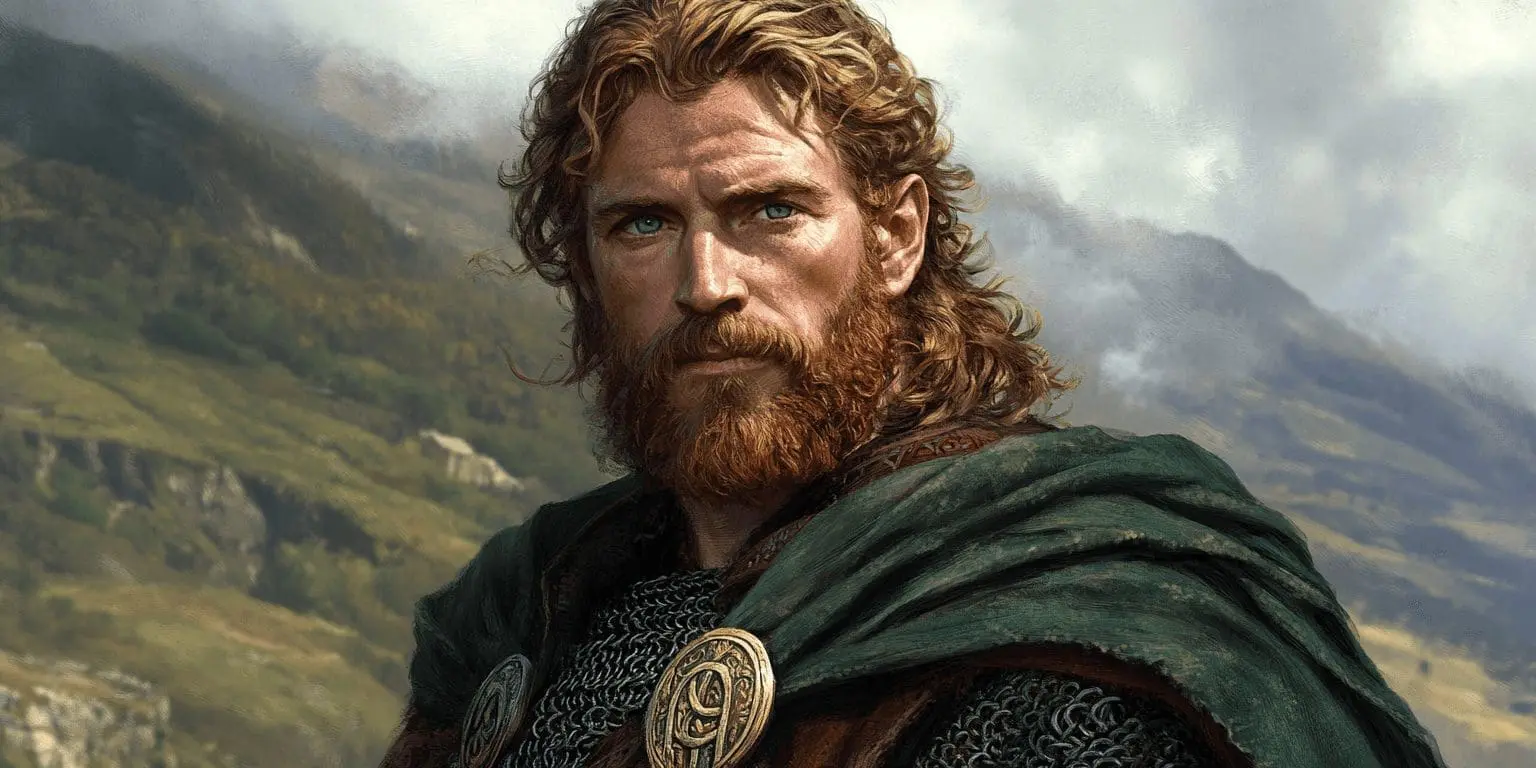Your basket is currently empty!

Rhodri Mawr (Rhodri the Great)
Rhodri the Great (c. 820 – 878 AD) was one of the most prominent and influential rulers in early medieval Wales. His reign marked a critical period in Welsh history, during which he achieved significant political consolidation, military success, and territorial expansion. His power and legacy were felt not only in his lifetime but in the following centuries as his descendants became key figures in Welsh resistance to foreign domination. Here are the major aspects of his life and legacy:
Consolidation of Welsh Kingdoms
Before Rhodri’s reign, Wales was fragmented into several smaller kingdoms, including Gwynedd, Powys, and Seisyllwg. Rhodri’s family lineage gave him rights to multiple territories:
- Gwynedd, which he inherited from his father, Merfyn Frych.
- Powys, which he gained through his mother’s line.
- Seisyllwg, added through his marriage to Angharad, daughter of the King of Seisyllwg.
By consolidating these regions under his rule, Rhodri is considered one of the first leaders to unite a significant portion of Wales, which would later serve as the foundation for the Welsh identity.
Military Leadership and Defense Against Viking Invasions

Rhodri’s era was characterized by increasing Viking raids across the British Isles. He earned widespread acclaim for his ability to defend Wales from these incursions, particularly in 856 AD, when he won a major victory against the Vikings, killing the Viking leader Horm. His military successes not only safeguarded Welsh lands but also increased his stature as a powerful ruler.
Resistance Against Anglo-Saxon Encroachment
While Rhodri was known for his battles against the Vikings, his reign was also marked by conflicts with the expanding Kingdom of Wessex under Alfred the Great and his predecessors. Rhodri’s territories in Powys faced persistent pressure from the Anglo-Saxons, and this struggle set the stage for centuries of Anglo-Welsh conflict. He was forced to flee to Ireland at one point due to Anglo-Saxon attacks but returned to resume his rule.
Death and Legacy
Rhodri died in 878 AD in battle, either against the Vikings or the Anglo-Saxons (historical sources differ). After his death, his kingdom was divided among his sons, which led to a period of fragmentation but also ensured that his dynasty, the House of Aberffraw, would continue to play a significant role in Welsh politics. His descendants, particularly through his grandson Hywel Dda (Hywel the Good), who codified Welsh laws, shaped Welsh governance for centuries.
Rhodri’s Influence on Later Welsh Kings
Rhodri’s dynasty became the ruling line of several Welsh kingdoms. His legacy as a unifier and defender against external threats was a touchstone for future rulers. Figures like Llywelyn the Great and Llywelyn ap Gruffudd drew from Rhodri’s example as they sought to consolidate Wales under their rule in the 12th and 13th centuries. Rhodri’s legacy was one of both military prowess and political unity, making him a revered figure in Welsh history.
Symbolism and Welsh Identity
In modern Welsh culture, Rhodri Mawr is seen as a symbol of Welsh independence and resistance. His ability to unite disparate kingdoms into a single entity is often viewed as a precursor to the idea of a unified Wales. He also stands as a figure of resilience in the face of external threats, be it from Viking invaders or Anglo-Saxon expansion.
Conclusion
Rhodri the Great was more than just a king; he was a pivotal figure in shaping medieval Wales through his military successes, consolidation of power, and the establishment of a dynasty that would influence Welsh history for generations. His reign marked the beginning of a more unified Welsh identity, with a legacy that reverberated well beyond his death.
Discover more from Histories and Castles
Subscribe to get the latest posts sent to your email.
-
Fortune Favours the Bold T-Shirt | Medieval Motto Tee
£19.10 – £35.86 -
Spitfire T-Shirt | Battle of Britain Union Jack TeeShirt
£19.10 – £35.86 -
Cymru Welsh Dragon Minimalist T-Shirt – Gildan 5000
£19.10 – £35.86 -
Born of Fire Made of Legend T-Shirt – Welsh Dragon Design
£19.10 – £35.86 -
The Red Dragon Rises T-Shirt – Welsh Dragon Shirt
£19.10 – £35.86 -
Black Panther Pendant
£20.19











